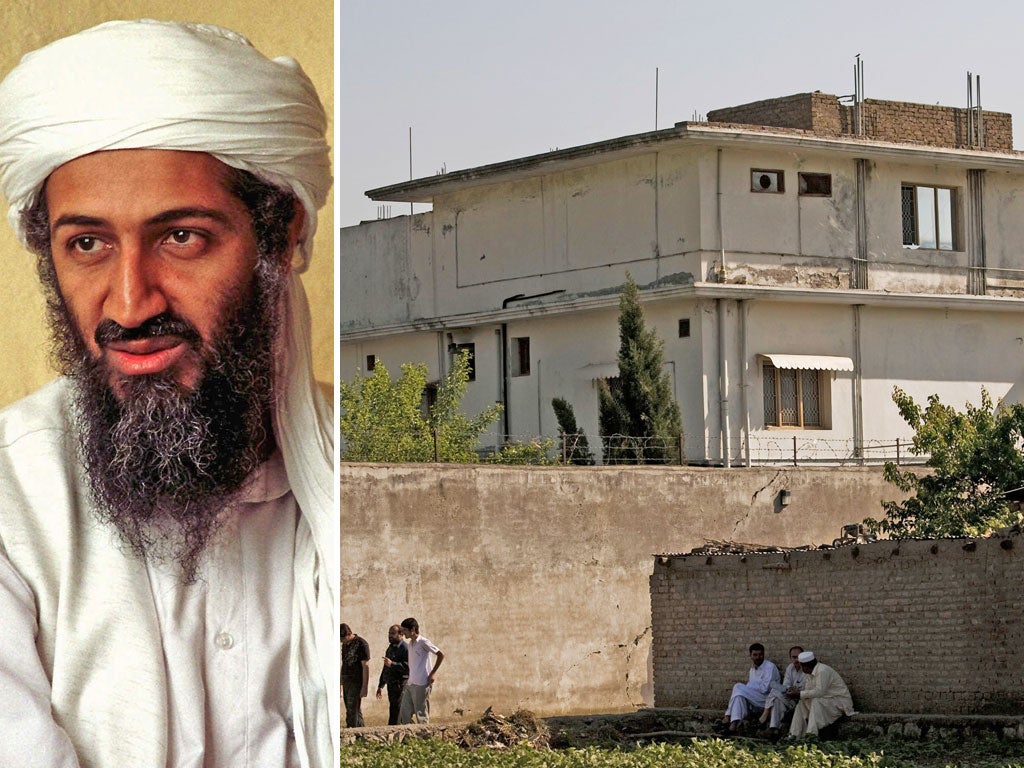Isolated and losing control: letters reveal Bin Laden's state of mind
US authorities release selection of files found during raid that killed the al-Qa'ida leader

Your support helps us to tell the story
This election is still a dead heat, according to most polls. In a fight with such wafer-thin margins, we need reporters on the ground talking to the people Trump and Harris are courting. Your support allows us to keep sending journalists to the story.
The Independent is trusted by 27 million Americans from across the entire political spectrum every month. Unlike many other quality news outlets, we choose not to lock you out of our reporting and analysis with paywalls. But quality journalism must still be paid for.
Help us keep bring these critical stories to light. Your support makes all the difference.
He wants to change his business strategy, but he's worried that his instructions are being deliberately ignored by bungling subordinates. It could be the fretting CEO of any struggling company. But in this case it's Osama bin Laden, whose business was al-Qa'ida.
Yesterday, the US authorities released a first sample of the documents captured during the raid on 2 May 2011 in which Bin Laden was killed. They depict a leader increasingly isolated and losing control, obsessed with security, and fearful that al-Qa'ida's violent ways are alienating ordinary Muslims.
He was so concerned that he considered rebranding al-Qa'ida, apologising for some of its attacks and renaming the group. He was especially keen on choosing a name with religious connotations so that every time it was condemned by a Western politician it would sound like a condemnation of Islam. Suggested names included Muslim Unity Group, Support of Islam and al-Aqsa Group, Restoration of the Caliphate Group, and Islamic Nation Unification Party.
The declassified material, mostly letters from Bin Laden to associates and commanders in the field, comprises only 17 of the 6,000-plus documents discovered in the compound at Abbottabad, Pakistan. But according to the US Army's Combating Terrorism Centre, they show the al-Qa'ida leader was "not the puppet-master pulling the strings". Rather, it says, Bin Laden "was burdened by what he saw as their incompetence".
The letters are from between September 2006 and April 2011, the last of them dated just a week before he died. The al-Qa'ida that emerges is, in many respects, a corporation like any other, riven by turf fights and personal jealousies – not least of them between Bin Laden and Anwar al-Awlaki, the internet propagandist who was killed by a US drone in Yemen last September.
His biggest concern was the support he was losing because of the deaths of thousands of Muslim civilians. In a long letter from May 2010, he writes how immediately after 9/11 his fighters were "standard bearers of the Islamic community in fighting the Crusader-Zionist alliance." But then, "some of the brothers became totally absorbed in fighting our local enemies." It was time, Bin Laden urged, for a "new phase" in which the focus was on Islam's real foe, the Americans.
The letters reveal his attention to detail, from which US media outlets might be most promising for al-Qa'ida to the merits of a book by The Independent's own Robert Fisk.
Subscribe to Independent Premium to bookmark this article
Want to bookmark your favourite articles and stories to read or reference later? Start your Independent Premium subscription today.
Join our commenting forum
Join thought-provoking conversations, follow other Independent readers and see their replies
Comments